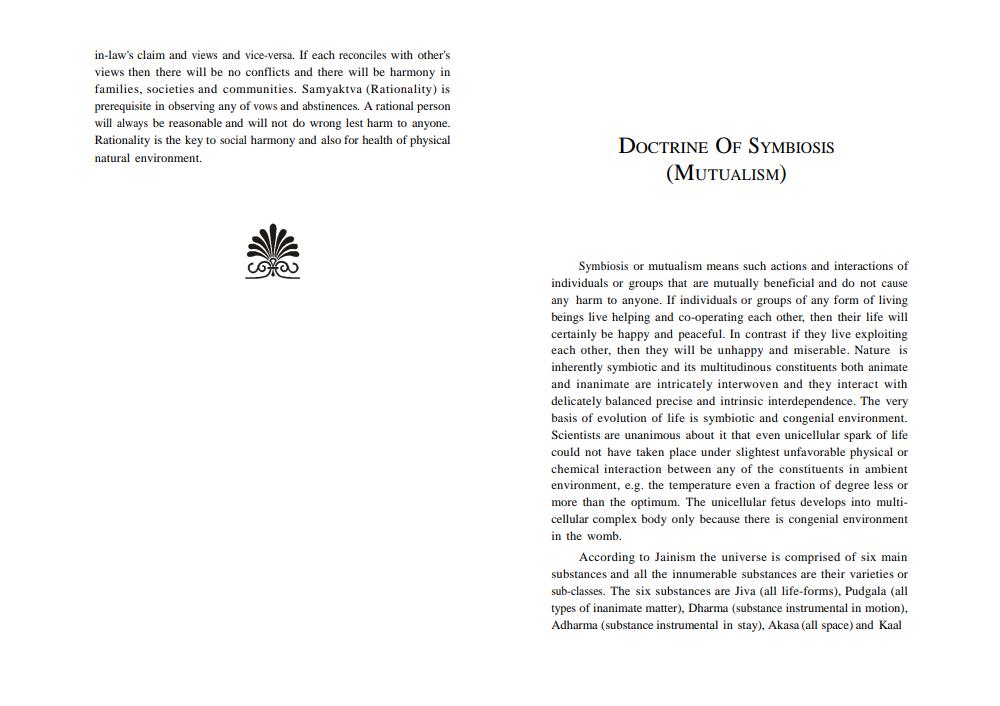________________
in-law's claim and views and vice-versa. If each reconciles with other's views then there will be no conflicts and there will be harmony in families, societies and communities. Samyaktva (Rationality) is prerequisite in observing any of vows and abstinences. A rational person will always be reasonable and will not do wrong lest harm to anyone. Rationality is the key to social harmony and also for health of physical natural environment.
DOCTRINE OF SYMBIOSIS
(MUTUALISM)
Symbiosis or mutualism means such actions and interactions of individuals or groups that are mutually beneficial and do not cause any harm to anyone. If individuals or groups of any form of living beings live helping and co-operating each other, then their life will certainly be happy and peaceful. In contrast if they live exploiting each other, then they will be unhappy and miserable. Nature is inherently symbiotic and its multitudinous constituents both animate and inanimate are intricately interwoven and they interact with delicately balanced precise and intrinsic interdependence. The very basis of evolution of life is symbiotic and congenial environment. Scientists are unanimous about it that even unicellular spark of life could not have taken place under slightest unfavorable physical or chemical interaction between any of the constituents in ambient environment, e.g, the temperature even a fraction of degree less or more than the optimum. The unicellular fetus develops into multicellular complex body only because there is congenial environment in the womb.
According to Jainism the universe is comprised of six main substances and all the innumerable substances are their varieties or sub-classes. The six substances are Jiva (all life-forms), Pudgala (all types of inanimate matter), Dharma (substance instrumental in motion), Adharma (substance instrumental in stay), Akasa (all space) and Kaal




